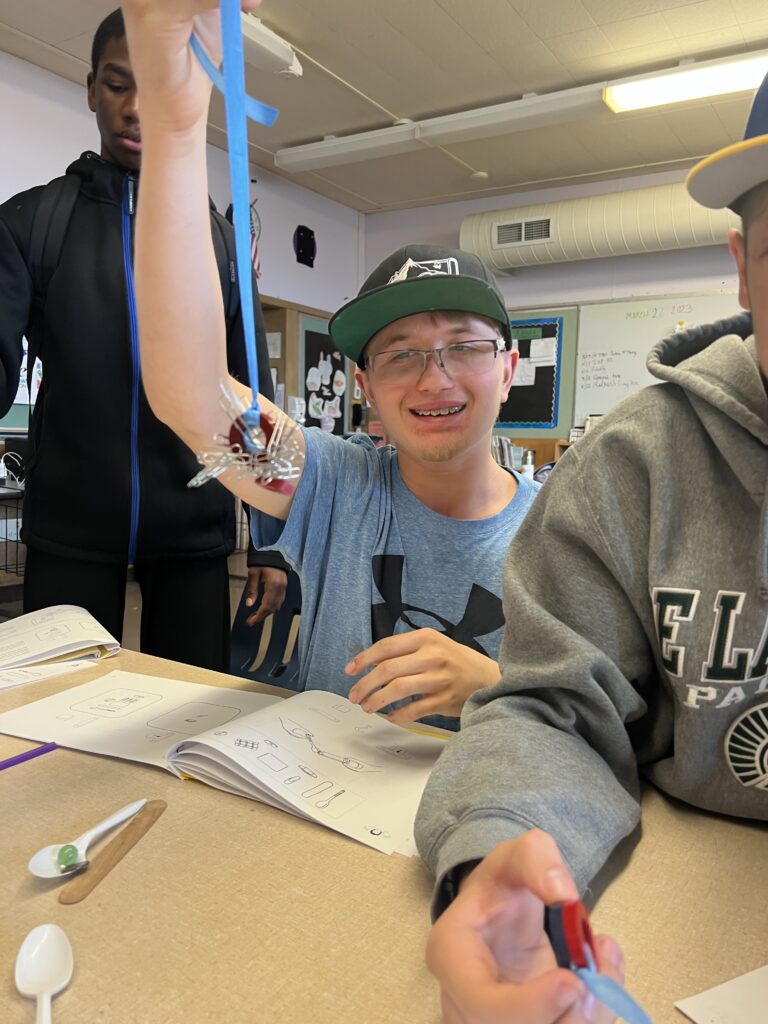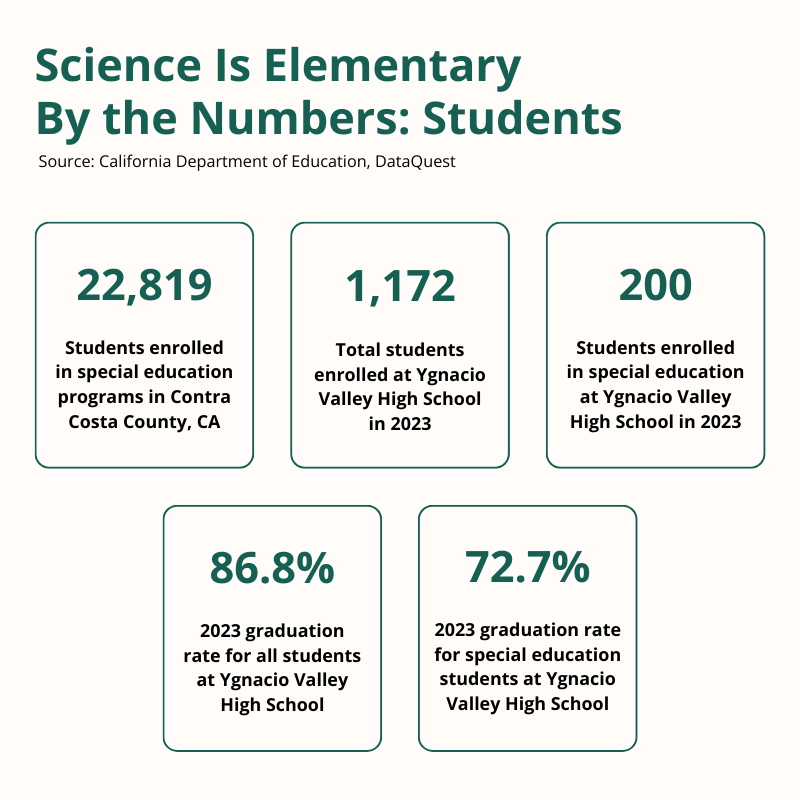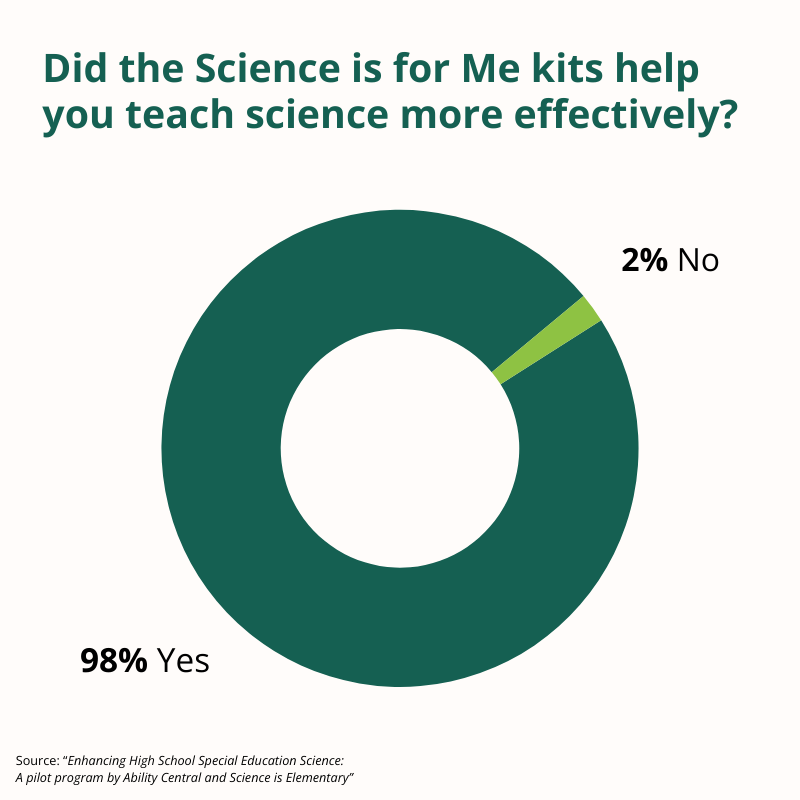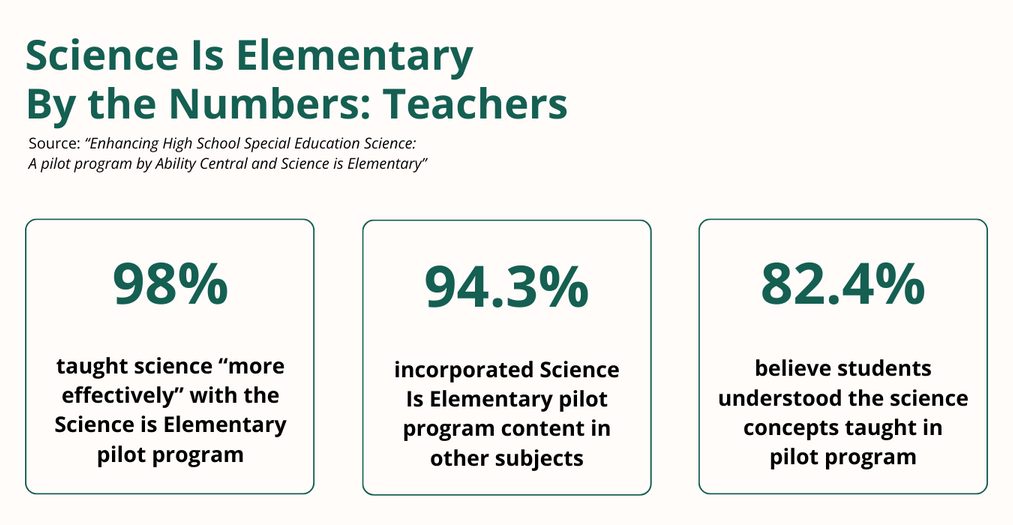How Ability Central and Science is Elementary Are Unlocking Special Education for High School Science
Rapid Response Grant Case Study
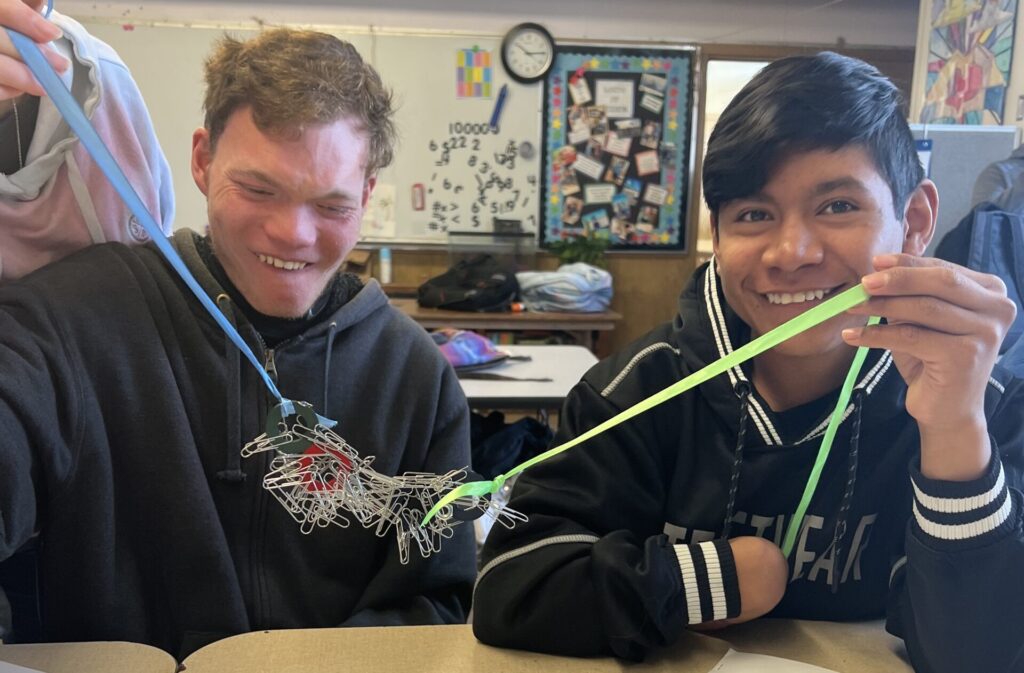
One rapid response grant from a California nonprofit showed how quickly local organizations can boost science education for students with disabilities. With support from Ability Central, Science is Elementary introduced a pilot program with a 98% success rate to students in California’s Contra Costa County. Science is Elementary works to make science accessible to all students.
“I like science because you can do fun things!”
Watch students from Ygnacio Valley High School talk about their experiences with the Science is Elementary pilot program.
Video provided by Science is Elementary
Founded in 2008, Science is Elementary (SIE) offers hands-on, interactive science lessons for K-12 students in California. In 2023, SIE partnered with Ability Central, an Oakland-based nonprofit serving people with communication disabilities, to bring science education to high school students with disabilities.
“One of the most rewarding aspects of this program has been witnessing its effectiveness in teaching science concepts to our special education students,” said Clifford Simmons, a teacher in the pilot program. “The hands-on approach truly resonated with them, leading to remarkable progress and enthusiasm for learning. What’s even more remarkable is that the engaging nature of the program has attracted interest from many [neurotypical] students who were eager to join in. It’s been a testament to the program’s ability to make science accessible and enjoyable for all learners.”
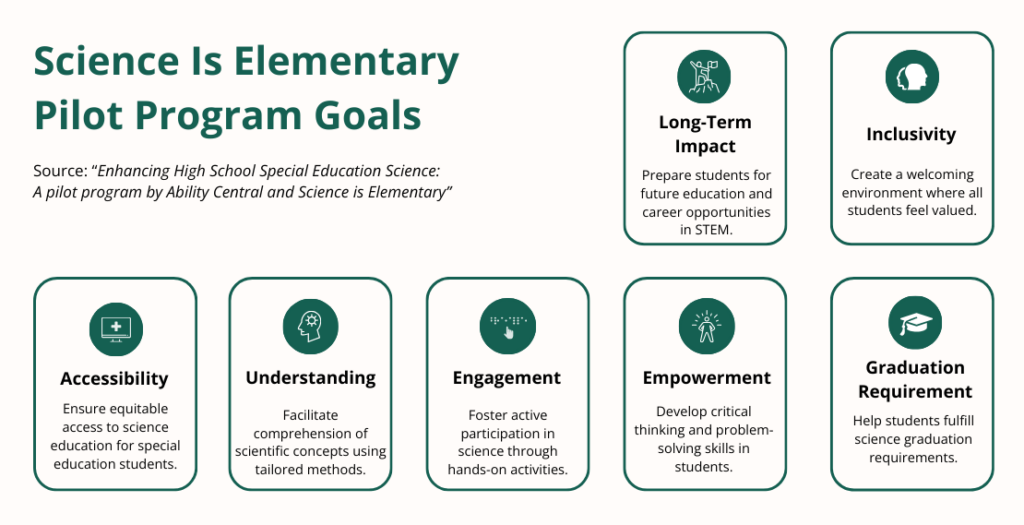
As of the 2022-2023 school year, there are nearly 23,000 students in special education programs in Contra Costa County, California. In collaboration with Ability Central, Science is Elementary’s new pilot program addressed the science education graduation requirements for special education students in one of the county’s largest high schools.
The pilot program at Ygnacio Valley High School enhanced science education through hands-on learning experiences tailored to meet students’ learning styles and abilities. More than 80 students participated in the program, developing critical thinking and problem-solving skills in a welcoming environment.
The SIE pilot program focused on accessibility, engagement, understanding, empowerment, and inclusivity. Science is Elementary worked with local teachers to conduct regular sessions at Ygnacio Valley High School. Each session consisted of active participation in a hands-on science activity, along with a “social story.”
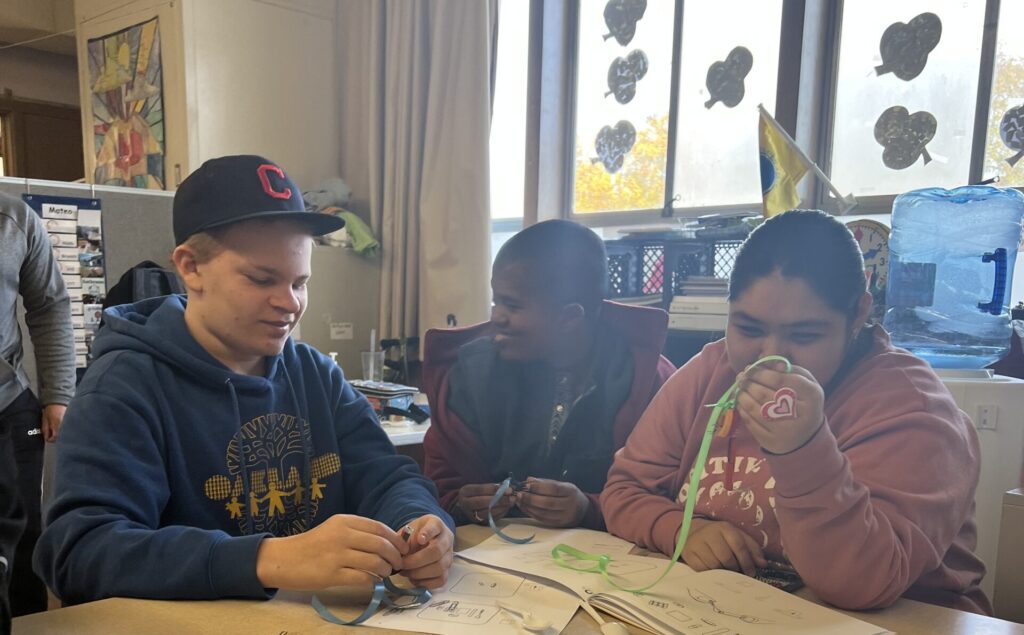
“I love science!” said Hudson, an SIE student at Ygnacio Valley High School. “We get to do fun things and try out ideas all day. It’s like playing and learning at the same time!”
Besides making science fun, the program ensured equitable access to science education, fostered active participation, and facilitated scientific method comprehension. Students in the program worked toward their graduation requirements while preparing for future education and career opportunities in STEM.
98% of teachers said the SIE program helped them teach science more effectively, and 100% of the pilot program’s participants found hands-on activities, SIE’s specialty, to be effective aspects of the curriculum. A further 81.4% of teachers noted that students were so engaged with the Science is Elementary program that they continued having science conversations outside of lessons.
“The integrated learning style of this program has sparked contagious enthusiasm for science among our students,” said Kelly Perkins, another teacher at Ygnacio Valley High School. “Through hands-on activities and collaboration, they’re fully immersed in experimentation all day. This passion extends beyond the classroom, and as they explore, they’re not just learning—they’re also meeting their graduation requirement in science.”
Science is Elementary developed the pilot program with a rapid response Access Improvement Grant from Ability Central. These mini-grants provide short-term funding ranging from $1,000 to $5,000 to help smaller nonprofits (especially those with a budget less than $1 million) increase the participation of people with disabilities in their events and programs.
Through their collaboration with Ability Central, Science is Elementary was able to bring their program to more than 80 students with special needs.
One of these students is a young man named Jack, who participated in the SIE program at Ygnacio Valley High School.
“I used to not like science,” he said. “It was too hard. But now I am a good scientist.”
To learn more about Science is Elementary, visit their website at www.scienceiselementary.org. For more information about Ability Central, visit their website at www.abilitycentral.org. Information about upcoming grant cycles, including applications for rapid response Access Improvement Grants, can be found here.
